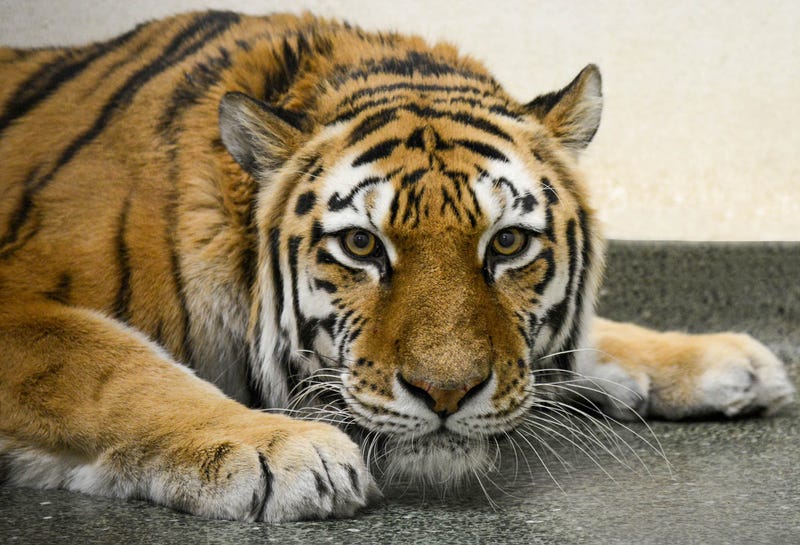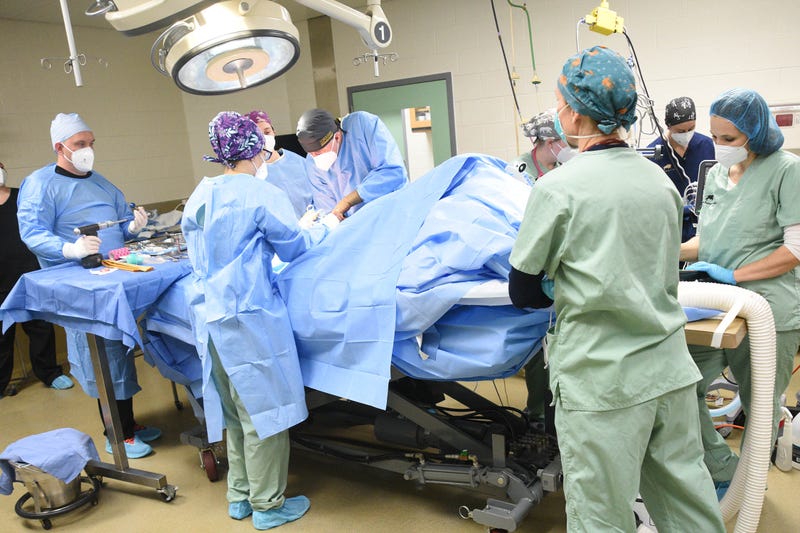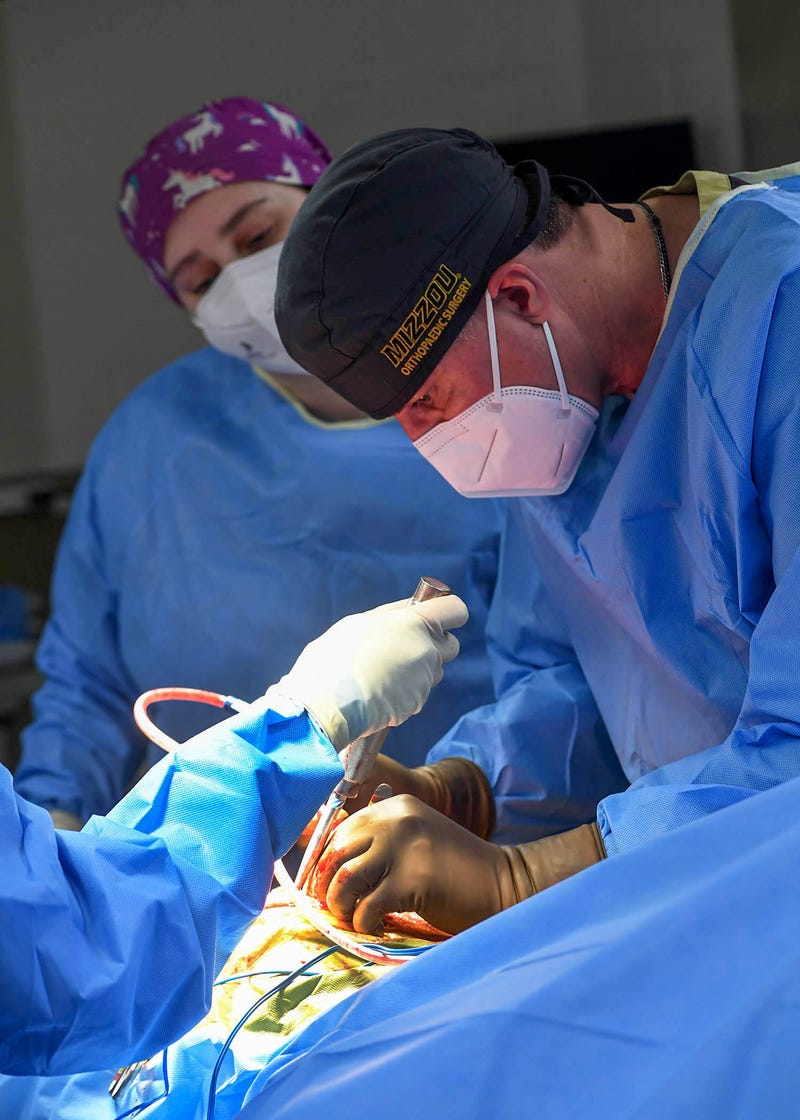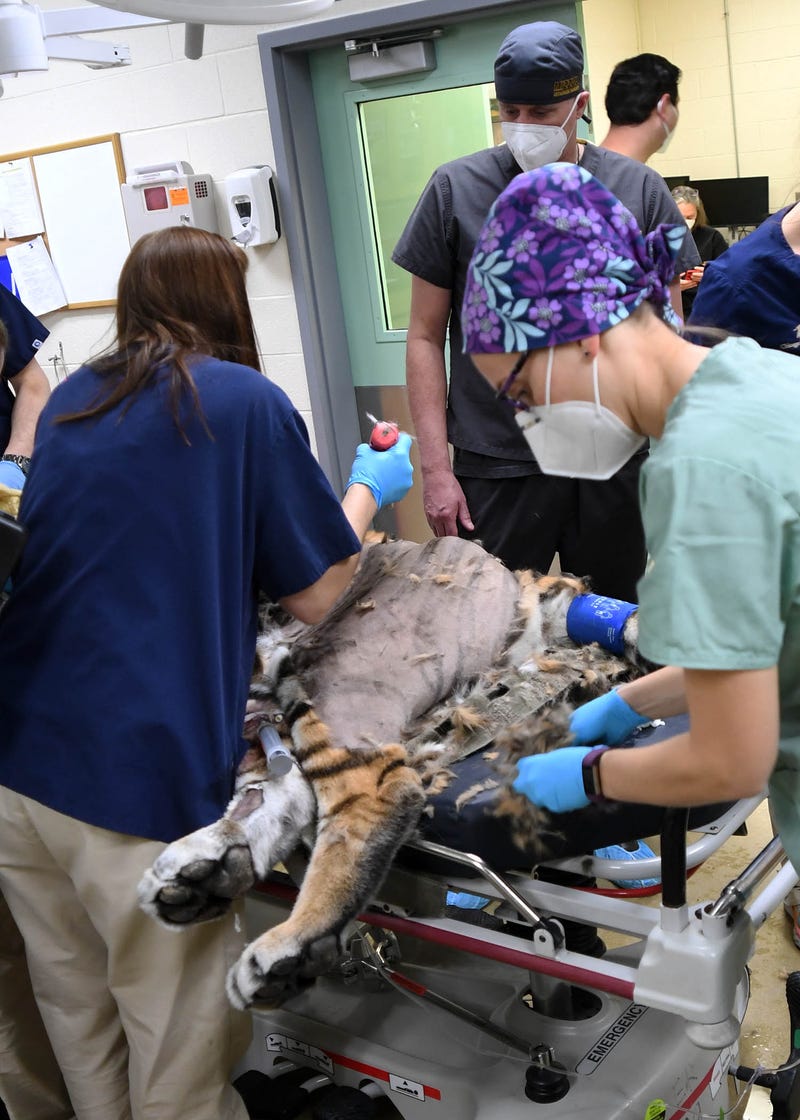
CHICAGO (WBBM NEWSRADIO) -- An endangered Amur tiger suffering from an arthritic hip underwent a successful total hip replacement surgery Wednesday at Brookfield Zoo.
According to the zoo, the procedure involved a custom-designed, patient-specific implant; and is believed to be the first time such a procedure was attempted on a tiger in North America.
Like humans, animals routinely develop degenerative changes in their joints as they age that can lead to the development of arthritis. When 10½ -year-old Malena arrived at Brookfield Zoo from another zoo in June 2020, she had already been diagnosed with hip arthritis and had been receiving pain relief medications to keep her comfortable.

Upon Malena’s incoming medical examination, Chicago Zoological Society veterinarians included a CT scan to fully characterize the status of her hips. They found extensive arthritic changes in her left hip joint, consisting of degenerative changes, partial dislocation, bony remodeling, and swelling. Collectively, these changes restrict her range of motion and use of the leg, in addition to causing her pain and stiffness when walking.
The zoo's veterinary team consulted with Dr. James Cook, DVM, Ph.D., director of the Mizzou BioJoint Center at the University of Missouri, and a veterinary surgeon with expertise in joint disease, who has assisted on several other orthopedic cases at Brookfield Zoo. Given the severity of the lesions in her left hip and Malena’s age, they felt that a full joint replacement, or a total hip arthroplasty (THA), was the best option to relieve arthritis-associated pain and provide a return to normal joint function.

Although it is routinely performed on people, the procedure is less common in veterinary medicine, particularly in non-domestic species. Standard THA implants often do not fit the anatomy of different species well, requiring customization—especially in an Amur tiger like Malena. Previous THA attempts with non-custom implant designs in a snow leopard, a cheetah, and a tiger in Germany have yielded mixed success.
“Although geriatric, Malena could still have many years of life ahead of her, so our team was focused on finding a solution that could keep her active and comfortable,” said Dr. Mike Adkesson, vice president of clinical medicine for the Chicago Zoological Society, which manages Brookfield Zoo.
After deciding that a custom-designed, patient-specific THA offered Malena the best potential outcome, Dr. Cook reached out to Arthrex, a global leader in minimally invasive orthopedic technology headquartered in Naples, Florida. Using data from Malena’s CT scan, the company designed, manufactured, and donated a custom-made implant that is specifically designed for Malena’s joint.
“It’s very rewarding to be able to use the latest in human medical technology to give back to an animal in need, especially when endangered like Malena,” said Dr. Cook. “The fact that this technology will also directly advance hip surgery for animals and people is just an awesome example of the One Health-One Medicine concept that the Brookfield Zoo and Mizzou teams love to see put into practice.”
To prepare for the surgery, which took just over six hours, the veterinary surgical team was able to refine and practice the procedure extensively using computer simulations, as well as using 3D-printed models.

“This implant will restore Malena’s normal hip movement and alleviate her discomfort. It will allow her the ability to navigate around her outdoor habitat without difficulty and lead a normal life for a tiger,” said Dr. Adkesson. “We are extremely grateful to Dr. Cook and his team, as well as to the engineering and research staff at Arthrex for manufacturing and donating the implant, which will greatly improve Malena’s quality of life.”
Amur tigers, formerly called Siberian tigers, are the largest cats in the world, with some as large as 11-feet long. There are only an estimated 500 Amur tigers left in the wild. Brookfield Zoo is fortunate to house two Amur tigers.

